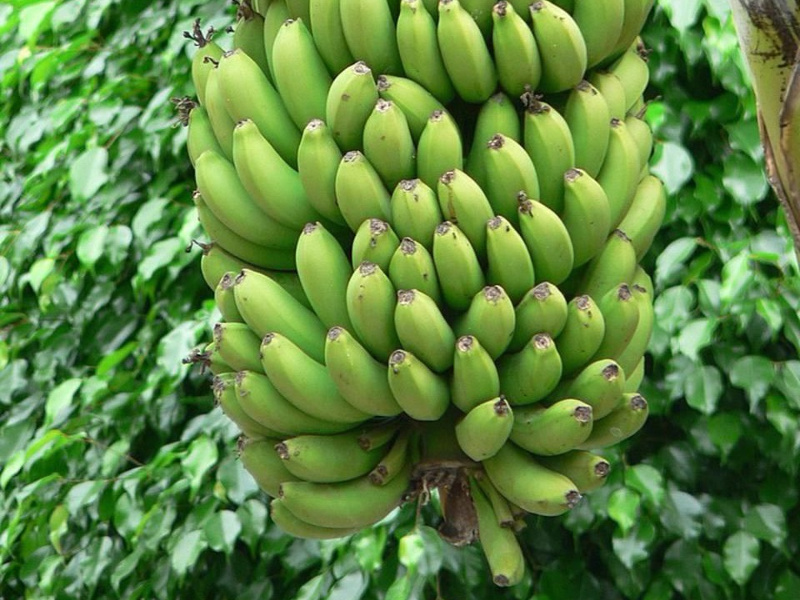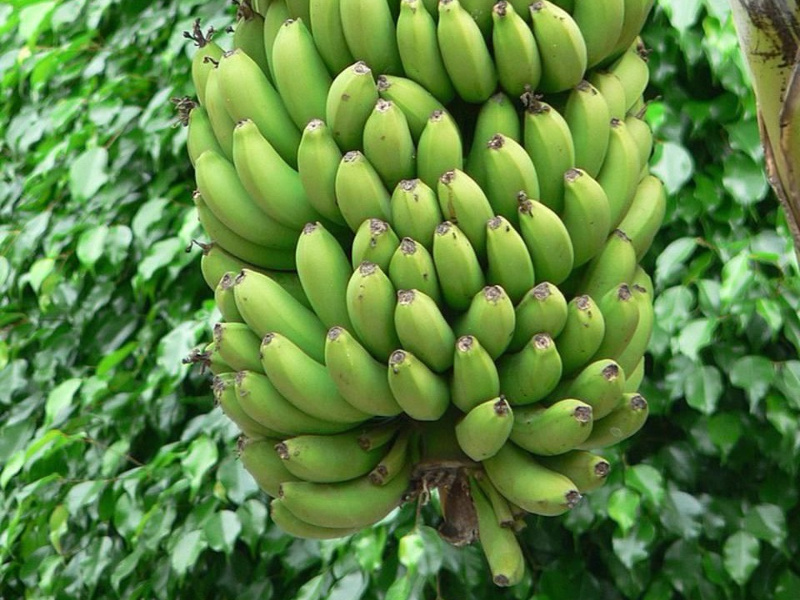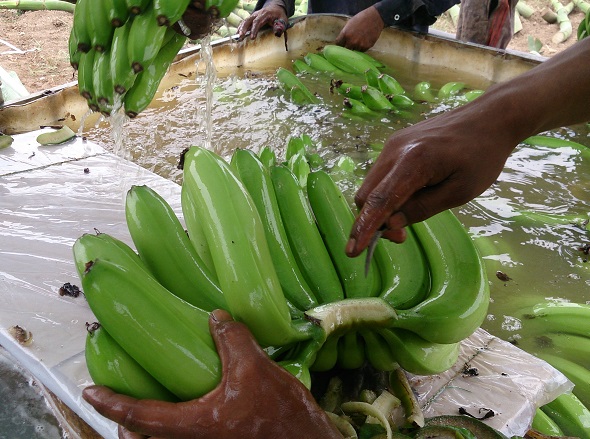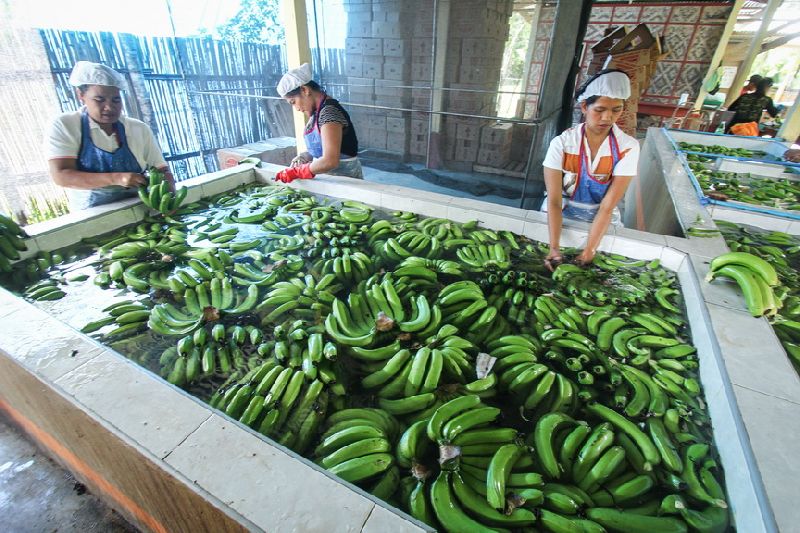Company Information
Ask for more detail from the seller
Contact SupplierBananas are one of the most widely consumed fruits in the world for good reason. Eating them could help lower blood pressure and reduce the risks of cancer and asthma. Today, bananas are grown in at least 107 countries and are ranked fourth among the world's food crops in monetary value. Americans consume more bananas than apples and oranges combined.
Health benefits : Listed below are the possible health benefits associated with bananas. It is important to note that more high quality studies are required before these health benefit links are proved definitive.
Potassium :
Nutritional profile :
One serving of banana is considered to be about 126 grams. One serving of banana contains 110 calories, 30 grams of carbohydrate and 1 gram of protein. Bananas are naturally free of fat, cholesterol, and sodium.
Bananas provide a variety of vitamins and minerals :
The recommended intake of potassium for adults is 4,700 milligrams per day
Bananas in the diet :
Contain Nutrients That Moderate Blood Sugar Levels :
Improve Digestive Health : Dietary fiber has been linked to many health benefits, including improved digestion. A medium-sized banana contains about 3 grams of fiber, making bananas a fairly good fiber source. Bananas contain mainly two types of fiber :
Help With Weight Loss : No study has directly tested the effects of bananas on weight loss. However, bananas do have several features that should make them a weight loss friendly food. For starters, bananas contain relatively few calories. An average banana contains just over 100 calories, yet it is also very nutritious and filling. They are also rich in fiber. Eating more fiber from fruit and vegetables has repeatedly been linked with lower body weight and weight loss. Furthermore, unripe bananas are packed with resistant starch, so they tend to be very filling and may reduce your appetite.
Bananas May Support Heart Health :
Contain Powerful Antioxidants :
Help You Feel More Full : Resistant starch is a type of indigestible carbohydrate found in unripe bananas, which functions sort of like soluble fiber in the body. As a rule of thumb, you can estimate that the greener the banana is, the higher the amount of resistant starch it contains. On the other hand, ripe (yellow) bananas contain lower amounts of resistant starch and total fiber, but proportionally higher amounts of soluble fiber. Both pectin and resistant starch have been shown to have appetite-reducing effects and increase the feeling of fullness after meals.
Improve Insulin Sensitivity : Insulin resistance is a major risk factor for many of the world's most serious diseases, including type 2 diabetes. Several studies have shown that 15–30 grams of resistant starch per day may improve insulin sensitivity by 33–50%, in as little as 4 weeks. Unripe bananas are a great source of resistant starch, and may therefore help improve insulin sensitivity. However, the reason for these effects is not well understood, and not all studies agree on the matter.
Improve Kidney Health : Potassium is essential for blood pressure control and healthy kidney function. As a good dietary source of potassium, bananas may be especially beneficial for maintaining healthy kidneys. One study in women showed that over 13 years, those who ate bananas 2–3 times per week were 33% less likely to develop kidney disease. Other studies have found that those who eat bananas 4–6 times a week are almost 50% less likely to develop kidney disease, compared to people who don't eat bananas.






